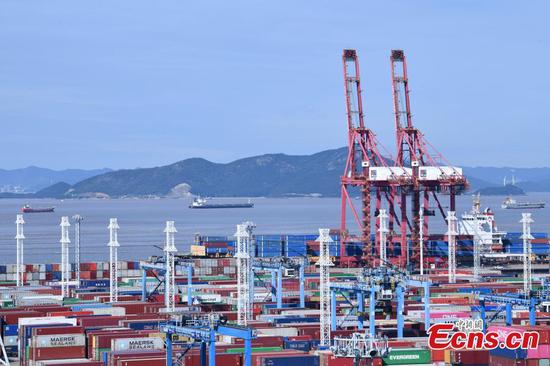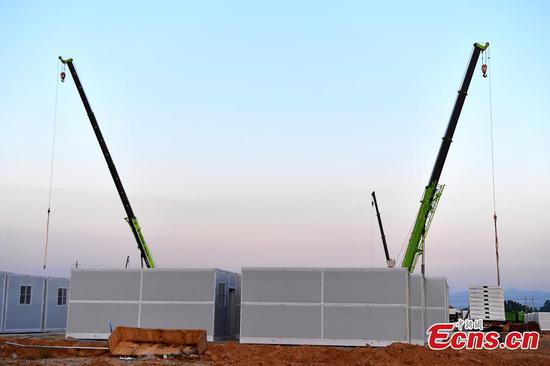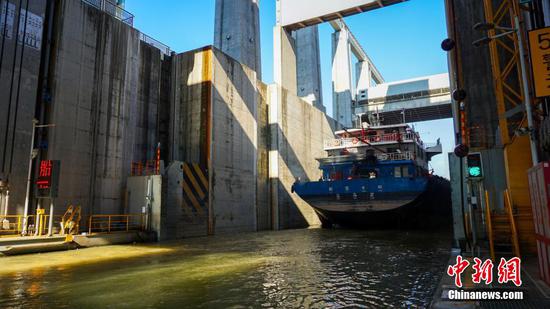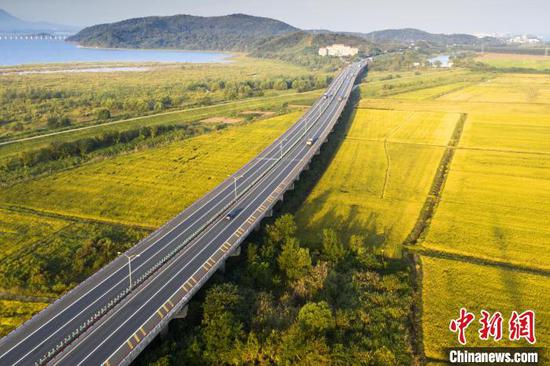China is moving toward the goals of the UN 2030 Agenda for Sustainable Development with significantly improved performance after 2015, according to a newly-released report.
The report -- "Big Earth Data in Support of the Sustainable Development Goals (SDGs)" -- was released during the Sustainable Development Forum 2021.
Guo Huadong is the director of the International Research Center of Big Data for Sustainable Development Goals and an academician of the Chinese Academy of Sciences. He said that China is moving toward the 2030 SDGs with greatly improved indicators included in the evaluation, especially after 2015.
The report conducted in-depth research, monitoring, and evaluation of 18 aspects under six of the UN SDGs -- Zero Hunger, Water and Sanitation, Sustainable Cities and Communities, Climate Action, Life on Land, and Life below Water.
According to the report, the natural carbon sink capacity in China and the global ecosystem showed a significant increase in the past 10 years. From 2015 to 2020, area under mangroves in China has seen a net growth of 16 percent. The unique plants are recognized as one of the richest carbon storage systems.
The first edition of the report was issued in September 2019 by the Chinese delegation to the 74th session of the UN General Assembly, focusing on the use of big Earth data to help accomplish the SDGs, as laid out in the 2030 Agenda for Sustainable Development.
The Sustainable Development Forum 2021 was held online and offline on Sunday and Monday at which UN Secretary-General Antonio Guterres delivered a written speech.
At the opening ceremony, Chinese State Councilor and Foreign Minister Wang Yi said via video that China will continue to work with all parties to advance the Global Development Initiative and make contributions to accelerating the implementation of the UN 2030 Agenda for Sustainable Development and bringing benefits to people of all countries.


















































 京公网安备 11010202009201号
京公网安备 11010202009201号